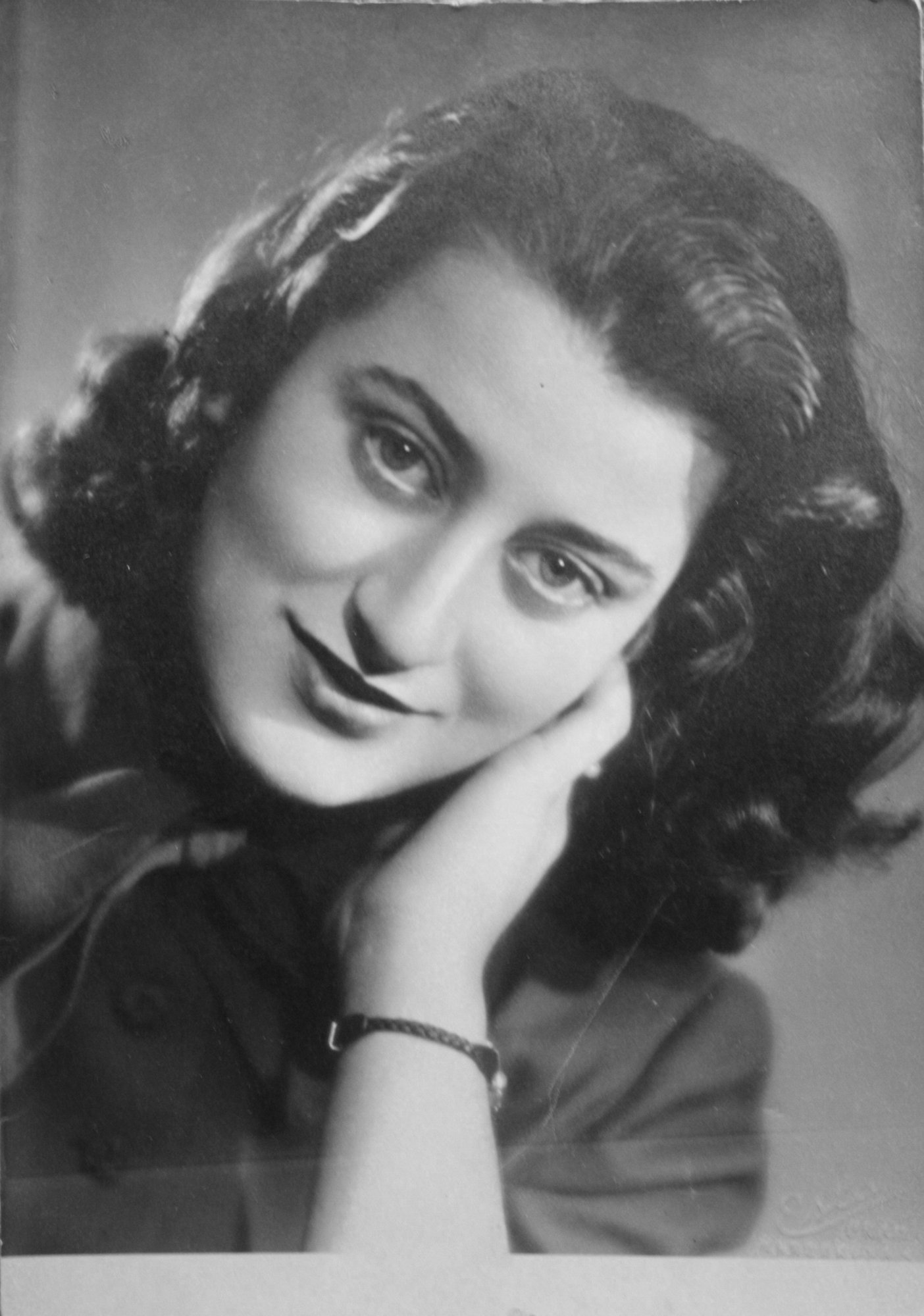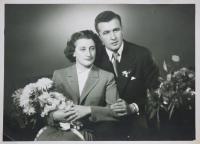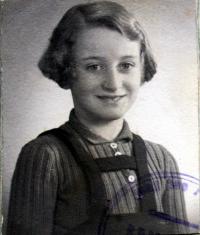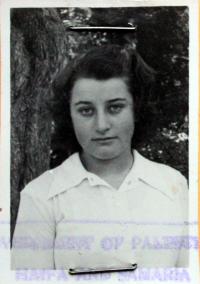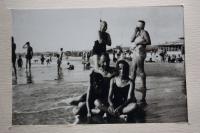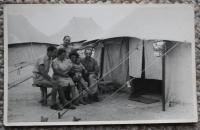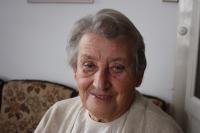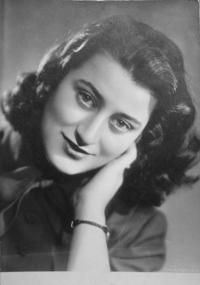We led an ordinary peaceful life until the Germans came.
Lota Bendová (b. Ehrmannová) was born in 1928 in Prague in a fully assimilated family of Jewish origin. Her uncle convinced her parents to leave in October 1939 with their children via the Danube River to Palestine. She attended school in Palestine, then she learnt to become a seamstress. At first they lived in a kibbutz near Tel Aviv, later they moved to Haifa. Her brother joined the army, he fought with the Czechoslovak armoured brigade in Dunkirk. After the war together with her parents she applied for repatriation, they returned to Czechoslovakia in 1946 via Italy in a special repatriation train dispatched from Rome. Shortly after the war she married, she has one daughter, two granddaughters. For thirty-seven years she was working as a nurse - teacher in a day nursery.
